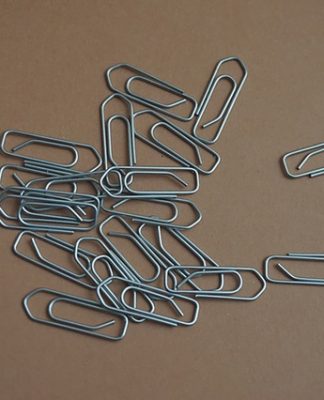There is a terrible feeling most of us have experienced during stressful times. It’s that vague sense of dread that something is going to go wrong and that we should do something but don’t know what that is. The heart starts racing or pounding, the stomach might tighten up or do nervous flips. Muscle tension or a sense of agitation might make it very hard to sit still. So we keep busy, try to distract ourselves with other activities in hopes that this feeling will go away. But it doesn’t and the longer it is ignored it can actually keep gaining strength and momentum.
This is anxiety and it can be one of the hardest feelings for people to be present with because it is part of a biological stress response that urges us to take action. It has to do with how the amygdala gets activated during stress or threat and a mind-body response of flight or fight gets triggered. Once this happens our rational brain (neocortex) has a hard time getting things calmed down. Our body is telling us to seek safety even when our logical mind is telling us the events really aren’t that threatening.
So if our logical brain can’t solve this problem then we need to find a solution elsewhere. Mindfulness teaches us to redirect our attention to our body wisdom. By connecting the mind to the awareness of sensations in body and the five senses, we can start to effectively reduce this agitation.
When I ask people to apply mindful awareness to their anxiety, I am asking them to do something very different than what this strong biological response wants them to do. When asked to pay attention to feelings and sensations in the body, people often respond initially with increased anxiety. It feels terrible. It takes great skill to sit mindfully and be present with difficult emotions.
Just this step is empowering as people realize that even though they feel like they want to jump out of their own skin, they can stay with it. The “RAIN” technique teaches us how to handle difficult emotions and truly take care of ourselves by understanding what we really need to feel better. This technique – Recognize, Allow, Investigate, Nurture – comes from mindful awareness practices. Many meditation teachers use this technique. My favorite is Tara Brach and she has tremendous wisdom and free resources available on her website.
Practice: “RAIN” on Your Anxiety
The first step is to Recognize that you are having symptoms of anxiety. It helps to label the symptoms, i.e. “my heart is racing, my stomach feels tight, my hands are shaking”. This is like a pause button that allows you to stop and face the feelings.
A very important part of recognizing is Allowing. It means noticing without judging what you are noticing. If you notice the symptoms and then go on to judge them by thinking that you shouldn’t be anxious, that there is no reason to be anxious, that something is very wrong with you because you are anxious or that you are going crazy or losing your mind (all of these are common anxiety related thoughts) it is going to be like fuel for the whole reaction and symptoms will increase. If you find yourself judging, label it “judging” and focus back on recognizing and allowing.
When you allow and avoid judging, it is like another pause button that makes more space for you to deepen your awareness by Investigating. Do this by continuing to label the thoughts, feelings and sensations in the body. As you stay with this process, what do you notice happens to the initial feelings? Notice what new information is gained and what changes in the body.
Once you are feeling calmer, ask yourself what you Need to Nurture yourself. When I suggest this kind of self-compassion to clients, sometimes they laugh with relief or may tear up with tenderness. The shift from avoiding and shaming to self-compassion and self-care can feel very profound. If you discovered your anxiety is related to feeling lonely, would it help to reach out to someone? If the anxiety is about being overwhelmed, would a small tea break or walk in nature help you regain your composure? If the anxiety is about other emotions you are scared or ashamed of, what kind of support would feel appropriate?
Mind-body awareness is an empowering way to handle anxiety and other difficult emotions because you don’t have to be afraid of these feelings or get away from them by distracting or disconnecting from yourself. Rather you can stop running from them and face them directly- they aren’t saber tooth tigers after all, simply feelings that give you information. With skillful awareness, you can better tolerate distress and choose actions that truly benefit you.
The skill of coming home to your own body no matter what conditions are arising at the moment creates a felt experience of safety. You begin to trust that by going inward and noticing emotions and symptoms without judgment, you can handle them. You can start to trust that there is a strong, wise part of yourself that you can always count on.


 Renee Podunovich is a licensed Clinical Mental Health Counselor offering psychotherapy in Salt Lake City, UT and beyond via online services. Renee earned a BA in Sociology and Human Services and a MA in Counseling. She has worked in human services for over 25 years and has been in private practice for 10 years. Renee is interested in health and holistic wellness, dance and movement, sustainable living and innovative designs and solutions. She is a freelance writer and has published two books of poetry: "Let the Scaffolding Collapse" (Finishing Line Press, 2012) and "If There is A Center" (Art Juice Press, 2008). Her writing workshops (in person and online) are designed to use creative writing as a tool for centering, reflecting and for personal growth. Renee offers caring, compassionate support and focused guidance to help people come into balance with their own inner wisdom and self-healing abilities and to make meaningful and lasting changes in their lives. She believes optimal wellness comes from feeling connected to our essential nature within and to the larger world around us. Renee's specialty is in mind-body therapies including EMDR therapy, mindfulness practices and meditation techniques that build awareness and compassion. Whether you are in a period of difficult transition or wanting to deepen your connection to your creative process and build positive resources, Renee provides a safe environment where your wisdom and needs are put first. Get ready to engage at the next level in your professional, creative or personal life!
Renee Podunovich is a licensed Clinical Mental Health Counselor offering psychotherapy in Salt Lake City, UT and beyond via online services. Renee earned a BA in Sociology and Human Services and a MA in Counseling. She has worked in human services for over 25 years and has been in private practice for 10 years. Renee is interested in health and holistic wellness, dance and movement, sustainable living and innovative designs and solutions. She is a freelance writer and has published two books of poetry: "Let the Scaffolding Collapse" (Finishing Line Press, 2012) and "If There is A Center" (Art Juice Press, 2008). Her writing workshops (in person and online) are designed to use creative writing as a tool for centering, reflecting and for personal growth. Renee offers caring, compassionate support and focused guidance to help people come into balance with their own inner wisdom and self-healing abilities and to make meaningful and lasting changes in their lives. She believes optimal wellness comes from feeling connected to our essential nature within and to the larger world around us. Renee's specialty is in mind-body therapies including EMDR therapy, mindfulness practices and meditation techniques that build awareness and compassion. Whether you are in a period of difficult transition or wanting to deepen your connection to your creative process and build positive resources, Renee provides a safe environment where your wisdom and needs are put first. Get ready to engage at the next level in your professional, creative or personal life!





















